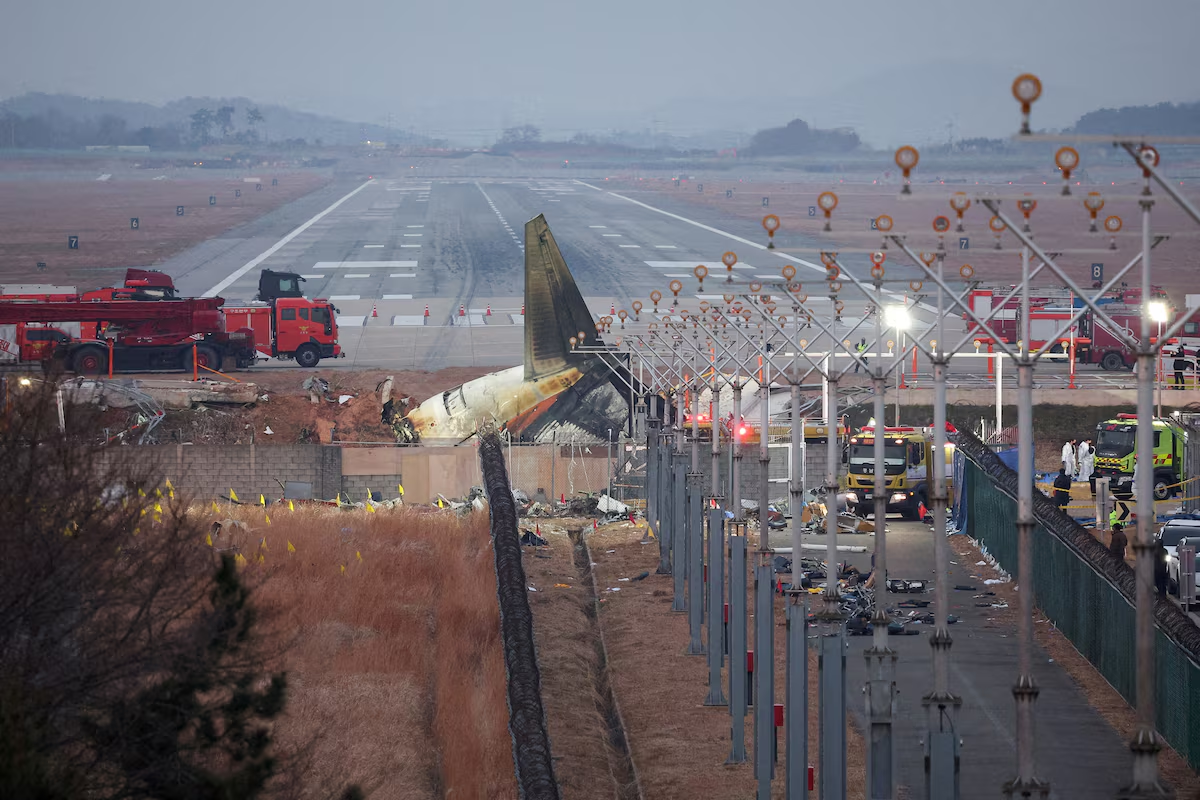Korean Air, Jeju Air, and T’way Air have been fined by the South Korean government a combined total of $2.6 million for compromising on safety standards and violating the ‘Aviation Safety Act’. Have the safety rules become stringent after the Jeju Air crash?

Which rules were violated?
T’way Air is a low-cost carrier (LCC) and holds a total of 40 aircraft as of May 2025. This LCC has faced the heftiest fine of $1.9 million. The airline skipped hydraulic fluid tests, failing to replace filters and reusing filters, altogether violating the maintenance manuals. Apart from this, a standard seven-day interval is set by the manufacturer Boeing, which was again violated by three B737-800 aircraft using inconsistent intervals.
Upon inspection during an airworthiness check, the airline had tampered its original maintenance records.
Korean Air was fined $95k for not following standard procedures for installing equipment. Instead, a temporary component was used to secure the flap system resulting in a violation. In June 2024, Korean Air 737 Max 8 bound for Taiwan from Incheon International Airport, detected a fault in the pressurisation system. This fault resulted in an emergency landing, turning back at Incheon Airport.
Jeju Air was fined $576k due to a malfunction and repeated defects identification during the engine troubleshooting. They failed to follow the required steps as stipulated. Two aircraft of Jeju Air were unable to meet the flight checks within the stated forty-eight-hour period.
The fines have been issued by the South Korean government along with the suspension of eight aviation maintenance engineers from the three airlines – T’way Air, Jeju Air, and Korean Air.

Jeju Air crash
Dec. 29, 2024, saw one of the deadliest plane crashes in South Korean aviation history. Jeju Air B737-800 en route to Muan International Airport from Bangkok collided with an embankment. This crash led to 179 deaths; only two cabin crew survived. The investigation and preliminary report findings state ‘bird strike’ and bad weather as the initial causes of the crash.
Investigations are still ongoing as victims’ families file a complaint against the Jeju Air CEO.
This specific incident sparked concerns in the country, speculating professional negligence by the airlines.

Aviation Safety System
To prevent such deadly mishaps, the Ministry of Land, Infrastructure and Transport announced “Aviation Safety Innovation Measures” on April 30, 2025. The airport operators will be required to verify their safety operations capabilities every five years to receive an “airport operating certification”. To prevent runway accidents, bird detection radar must also be properly equipped.
The government also plans to strengthen maintenance by increasing the maintenance time from 7 to 28% from October 2025.
In a statement by a ministry official as cited by Yonhap news agency:
“To ensure airlines do not neglect investments in aviation safety, we will continue to strengthen oversight across all aspects of maintenance and operations.”
Incidents are being met with safety precautions and regulations. But do you think the government is taking the necessary steps to prevent such mishaps in the future? Let us know in the comments below!









